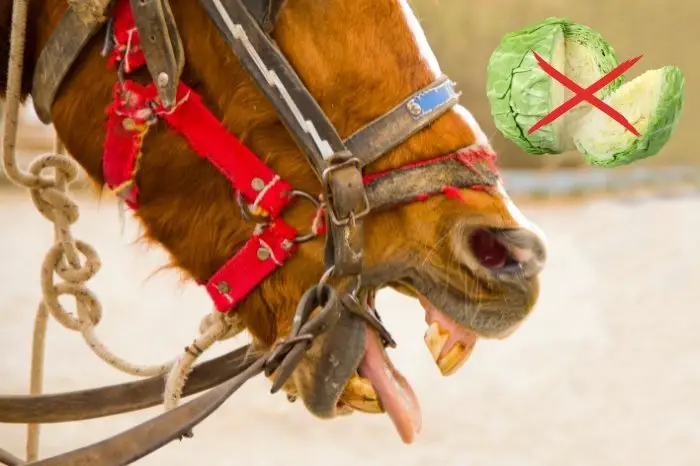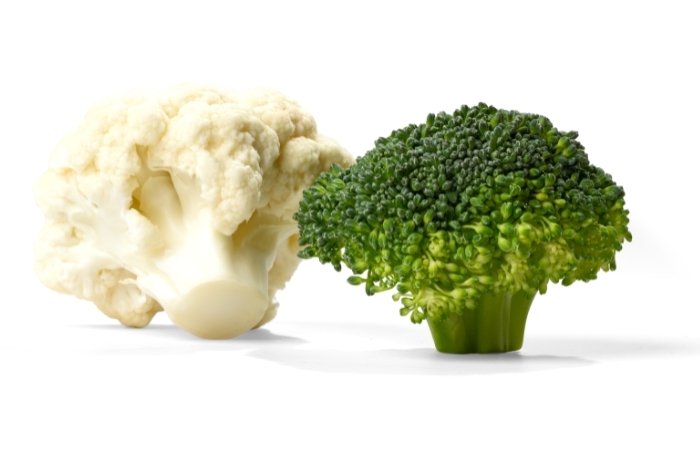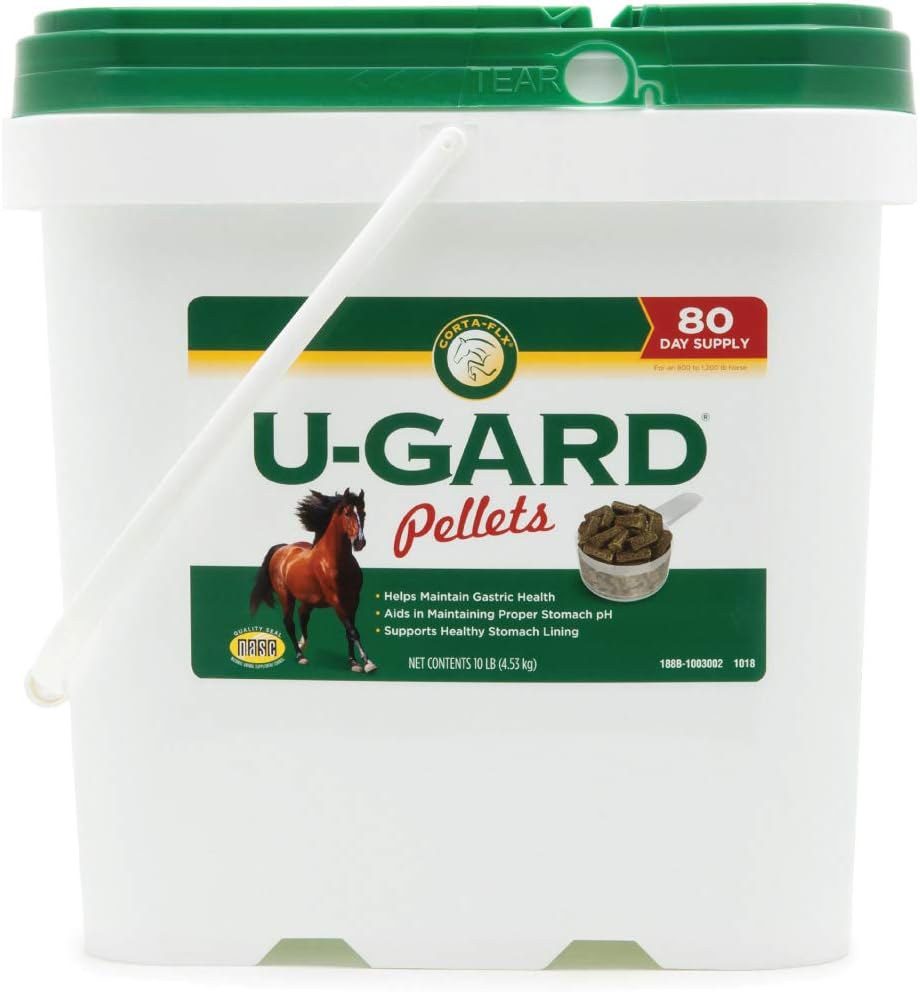Last Updated on May 18, 2022
We all know that horses enjoy eating many types of fruit and vegetables, but can horses eat cabbage? Or is cabbage toxic to horses? Let’s find out!
Can Horses Eat Cabbage?
If you were to offer cabbage to your horse, he would most likely be interested in eating it. But can horses eat cabbage, or does it cause any problems?
Cabbage is not poisonous to horses, but it does have some unwanted effects on the digestive system that means it is not advisable to feed cabbage to horses.
It is generally accepted that a small amount of cabbage would be OK for a horse to eat, but the effects of feeding cabbage to horses are not predictable and it is probably best just to avoid it altogether. You might be lucky and find that your horse is fine when he eats cabbage, but it is not a risk worth taking!

Why Can’t Horses Eat Cabbage?
The reason that cabbage can cause problems in horses is down to the way that the horse digests this vegetable. Cabbage is high in a substance called raffinose. This is a sugar that is digested by bacteria through a process of fermentation in the intestines.
Raffinose is not a substance that horses are accustomed to eating, and there are some unwanted effects that can occur. During the fermentation of cabbage in the intestines, the bacteria produce a large amount of gas. The same can occur when humans eat cabbage, which is why some people feel very bloated when they’ve eaten cabbage!
Have you wondered Can Horses Go Downstairs?
Horse Digestive System – Can Horses Eat Cabbage?
The problem with horses eating cabbage is that their digestive system works very differently from humans. A horse cannot vomit or burp, and once food and gas are in the digestive system there is only one way out – through the rear end, as feces or flatulence. You may have noticed that your horse passes a lot of wind – this is because he cannot burp, so any excess gas must be expelled through the end of the digestive tract.
The digestive tract of a horse is a long and complicated system of tubes, with many twists and turns. It can take a long time for gas and fecal matter to pass right through this system, and gas will build up at certain points.
When large amounts of gas are produced by the bacteria responsible for fermenting the sugars in cabbage, these can accumulate within the intestines, causing the intestines to become distended. This is a similar feeling to bloating in humans and is very uncomfortable for the horse.
Corta-Flx U-Gard Pellets |All Natural Equine Digestive Supplement to Maintain Gastric Health
This build-up of gas can then lead to the horse developing symptoms of colic, which is a painful and debilitating condition for the horse. When a horse has colic, he will attempt to relieve the pain by rolling, pacing, pawing at the ground, and kicking at his abdomen.
If this happens to your horse, the pain may pass by itself, as the gas moves along the digestive tract and out through the rectum. However, in some cases, it may be necessary to get veterinary assistance, as the horse is at risk of injuring itself.
Colic from excessive gas is unlikely to need surgical treatment, but your veterinarian will be able to help your horse through this uncomfortable condition. The horse can be given medication to help reduce the painful spasms in the intestines, and also painkillers to make them more comfortable.
Can Horses Eat Cauliflower Or Broccoli?
Cabbages belong to a family of vegetables called brassicas. Other vegetables in this family include cauliflower and broccoli, and also kale, collard greens, turnips, and Brussels sprouts. You might also hear these vegetables referred to as cruciferous vegetables.
The leaves, stalks, and flowers of these vegetables are all high in raffinose, the substance that causes bloating in horses. This means that horses should not be fed any of these vegetables, as a large amount can cause a build-up of gas, leading to colic.
Some nutritionists advise that horses could eat a small amount of brassica vegetables without any problems, so if your horse grabs a mouthful of broccoli or cauliflower you don’t need to panic too much. However, we would not advise that you start including large amounts of these vegetables in your horse’s diet, as this could lead to serious problems.

Summary – Can Horses Eat Cabbage?
So, as we have learned, horses should not be fed cabbage as it can cause serious health problems. When horses eat cabbage, the gastrointestinal system produces a lot of gas, which can become trapped in the intestines. This also happens when horses eat other vegetables from the same family, such as cauliflower, broccoli, and kale.
We’d love to hear your thoughts on can horses eat cabbage! Do you have one of those horses that like to eat everything, no matter whether it is good for him or not? Or perhaps you’ve got a question about how many snacks your horse can have every day? Leave a comment below and we’ll get back to you!
FAQ’s

Kate Chalmers is a qualified veterinary nurse who has specialized in horse care for the vast majority of her career. She has been around horses since she was a child, starting out riding ponies and helping out at the local stables before going on to college to study Horse Care & Management. She has backed and trained many horses during her lifetime and competed in various equestrian sports at different levels.
After Kate qualified as a veterinary nurse, she provided nursing care to the patients of a large equine veterinary hospital for many years. She then went on to teach horse care and veterinary nursing at one of the top colleges in the country. This has led to an in-depth knowledge of the care needs of horses and their various medical ailments, as well as a life-long passion for educating horse owners on how to provide the best possible care for their four-legged friends.
Kate Chalmers BSc (Hons) CVN, Dip AVN (Equine) Dip HE CVN EVN VN A1 PGCE

